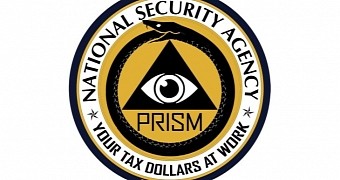Yahoo was threatened with fines of $250,000 (€193.423) per day if it didn’t comply with broad demands to hand over users’ communications. The one putting all the pressure was none other than the US government.
The whole situation came to light after court documents from 2008 were unsealed yesterday, shedding light on how federal agencies go about forcing US tech companies to share data for the PRISM program, the Washington Post reports.
Yahoo has revealed a while back that it had tried to fight off the NSA and other agencies that demanded data of them. Other unsealed court documents were proof of this, showing that the company was forced by the FISA court to comply with demands for data.
Yahoo wanted to show the world that it did not willingly participate in the PRISM program and it succeeded in doing so.
How Yahoo ended up in PRISM
The newly unsealed documents, about 1,500 pages in total, expose the unsuccessful legal battle Yahoo went through in 2008, trying to resist demands made by the government. The loss resulted in Yahoo being sucked up into the PRISM program that gave the NSA access to records of online communications from a series of companies.
Since the gag order has been lifted with the unsealing of these documents, one cannot help but wonder just how many of the companies on the list, if any, were willing participants to this entire effort to violate people’s privacy. Microsoft, Google, Facebook, YouTube, Skype, AOL, PalTalk and Apple are all on a list from the NSA that was included in the first batch of documents when the scandal began last year.
The ruling that was exposed now comes from the same Foreign Intelligence Surveillance Court who acted all offended when it was called a “rubber stamp” despite the fact that it hasn’t said “no” to the NSA in years, not even when it noticed the agency was collecting more information than it should.
The Foreign Intelligence Surveillance Court and the Foreign Intelligence Surveillance Court of review, an appellate court, ordered the declassification of the documents last year as the efforts to explain the legal details behind the NSA’s surveillance programs intensified.
“Despite the declassification and release, portions of the documents remain sealed and classified to this day, unknown even to our team. The released documents underscore how we had to fight every step of the way to challenge the U.S. Government’s surveillance efforts. At one point, the U.S. Government threatened the imposition of $250,000 in fines per day if we refused to comply,” Yahoo’s General Counsel Ron Bell wrote in a blog post following the decision to declassify the files.
The company notes that they’re pushing for the FISC to release materials from the 2007-2008 case in the lower court.
“Users come first at Yahoo. We treat public safety with the utmost seriousness, but we are also committed to protecting users’ data,” Yahoo writes, most likely happy that there’s public proof of its efforts.
The Protect America Act, or how to legally spy on anyone
As Yahoo points out, the origin of the issues stems in the Protect America Act, a law that was passed in 2007, and which allowed the government to collect data for foreign intelligence goals on targets that they believed to be outside of the United States. This did not require the existence of search warrants.
The order that Yahoo protested against required data from Yahoo that the company did not feel comfortable sharing, especially since it didn’t include traditional requirements such as the one that indicated each target had to be subject to court review before surveillance could begin. They also requested more than metadata, namely full emails.
Yahoo sued the governments, hoping not only to postpone handing over the data, but also to get the US government off its back, considering that the order and the law it was based on overstepped constitutional rights. More specifically, it bended the Fourth Amendment which states that people are protected from unreasonable searches and seizures without a warrant.
Eventually, after the company lost its initial round with, the government threatened with a fine of $250,000 per day, which pushed the company to start complying with the order, even though it was still pushing for an appeal.

 14 DAY TRIAL //
14 DAY TRIAL //